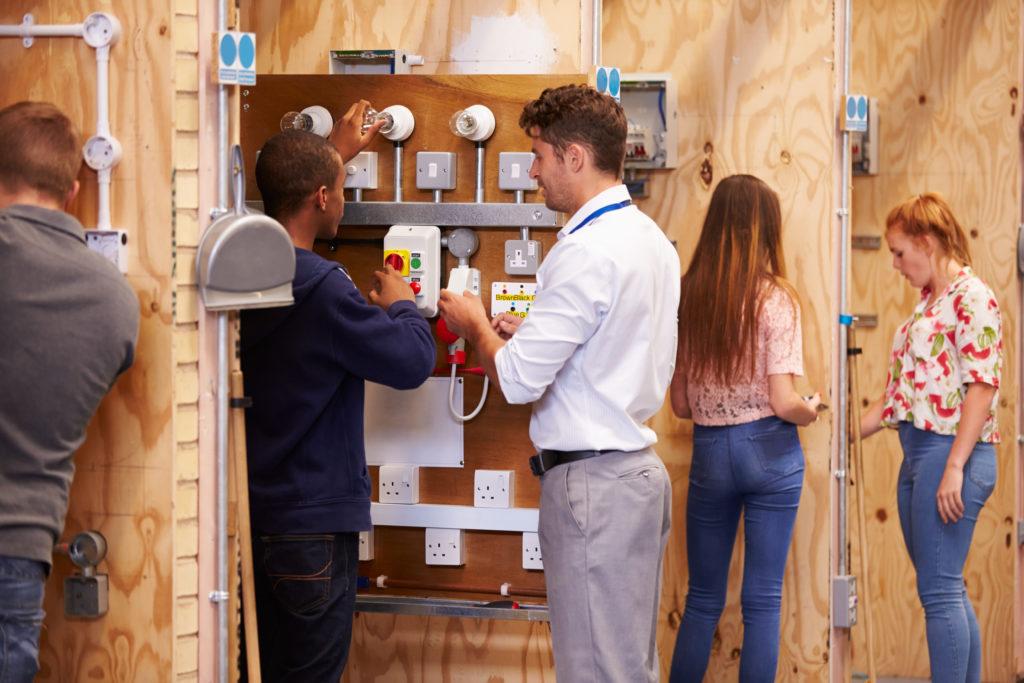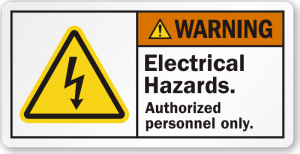
How to become an electrician in 2021
Having a career within the electrical industry is desirable for many – this is not a surprise with the many benefits to being an electrician, such as job security, high earning potential, self-employment opportunities, and many more.
How do I begin my career to become an electrician?
There are many different paths to becoming an electrician – knowing where to start can feel quite overwhelming and confusing.
The most common way that people become electricians is by doing an apprenticeship, usually straight from school. Apprenticeships are a great way for people to gain both qualifications and experience – there are many different ones around. There is also funding available, to be eligible for funding you must:
- Live in England
- Be employed for a minimum of 16 hours a week by a qualified electrician
- Have 4 GCSEs graded A*-C, including Maths and English – if you don’t have this, you can still be accepted for funding if you have passed a functional skills test in the last five years.
Whilst working as an apprentice electrician, you will receive an apprentice wage – the national minimum wage for apprentices in the UK is currently £4.30 for ages 16-18, and those over 19 who are in their first year. Over 19’s who have completed their first year of apprenticeship are entitled to £6.56. It can take two to four years to become a fully qualified electrician via apprenticeship.
Apprenticeships are a great option, particularly for younger people, but living on an apprentices wage isn’t ideal for somebody with responsibilities such as a mortgage, family, car, etc.
How to become an electrician without an apprenticeship?
Apprenticeships are not a requirement for becoming an electrician – there are many ways to do it without one! To determine the route you take, you must decide whether you want to become a fully qualified electrician or become employed quickly and work on certain jobs.
There are a range of training courses that can allow you to enter the industry. The duration and cost of courses differ, but many training providers, such as Technique Learning Solutions, can be flexible to suit your lifestyle by splitting up courses and offering payment plans. Some training providers also offer package courses, grouping a range of qualifications to save candidates time and money.
Entering the industry
As mentioned, candidates can opt to enter the industry quickly and begin working. This would not mean they are fully qualified, and therefore may not be able to become self-employed, join a competent person scheme, or gain their gold card. However, entering the industry can help you build your knowledge and experience.
A quick way to enter the industry is by completing our Total Electrical 20 course. This course provides a range of electrical skills and knowledge to beginners, enabling them to complete certain electrical work. This course also provides qualifications that are sought after within the electrical industry, including:
- City & Guilds 2382-18: 18th Edition Wiring Regulations
- City & Guilds 2377-77: PAT Testing
- City & Guilds 2392: Fundamental Inspection, Testing, and Initial Verification
- City & Guilds 2393: Building Regulations for Electrical Installations in Dwellings
Once this course is complete, candidates will be able to complete other training courses and begin working in the electrical industry in a short amount of time.
Becoming fully qualified
The process for those wanting to become fully qualified, meaning they can work for themselves in the future, join a competent person and Part-P scheme, and gain a gold card, is different and takes longer to complete.
Beginners should start with the City & Guilds 2365-02 course, which provides a level two diploma in Electrical Installations. This course covers a wide range of electrical subjects and candidates will gain sufficient skills, knowledge, practical training, and recognised qualifications such as 18th Edition Wiring Regulations, Level two certificate in Fundamental Inspection, Testing and Initial Verification, and Building Regulations for Electrical Installations in Dwellings. Once this Level two diploma is gained, candidates will be able to begin working as an electricians mate and move on to their Level three diploma.
The City & Guilds 2365-03 course provides a level three diploma in Electrical Installations – the course expands on knowledge gained in the Level two course, with a focus on Inspection and Testing, Electrical Science, Fault Diagnosis, and system design. Once successfully completed, candidates will gain their Level three diploma in Electrical Installations and can move onto the City & Guilds 2357 NVQ Level 3 Electrical Installation or Maintenance.
It takes a total of 16 weeks to complete the Level two and three 2365 courses.
The NVQ Level three is not a training course – it is an assessment of competence and is the last step to becoming a fully qualified electrician. Candidates will complete this in a place of work, they must complete electrical installations on-site which will then be evaluated by an assessor. There are many different units candidates must complete work on, and have it assessed – this will help build their portfolio. The duration of this differs for each candidate, it can take six months to one year to complete. Once completed, candidates can complete their end-point assessment.
AM2 Assessment
Something that the apprentice and training course routes have in common is that they must complete the AM2 test to become fully qualified and be able to gain a gold card. The AM2 assessment is an industry-recognised trade test that has been designed to evidence that candidates have gained all relevant and safety-critical competencies during their training. It provides a single standard that has been agreed upon by employers within the electrical industry, giving a trusted and reliable guarantee of safe, high-quality skills for the industry.
Overall, whichever path you decide to take there are many ways to enter the industry, all of which you can grow from, and continue training to ensure competency and gain new skills. The electrical industry is a great one to enter, and we’re happy that we can help beginners with their full journey.
We have a FREE guide below or view all our electrical courses by clicking here
For more detailed advice on how to become an electrician, including suggested course paths for the different routes, download our guide below! Simply enter your details below and we will send the full guide.




